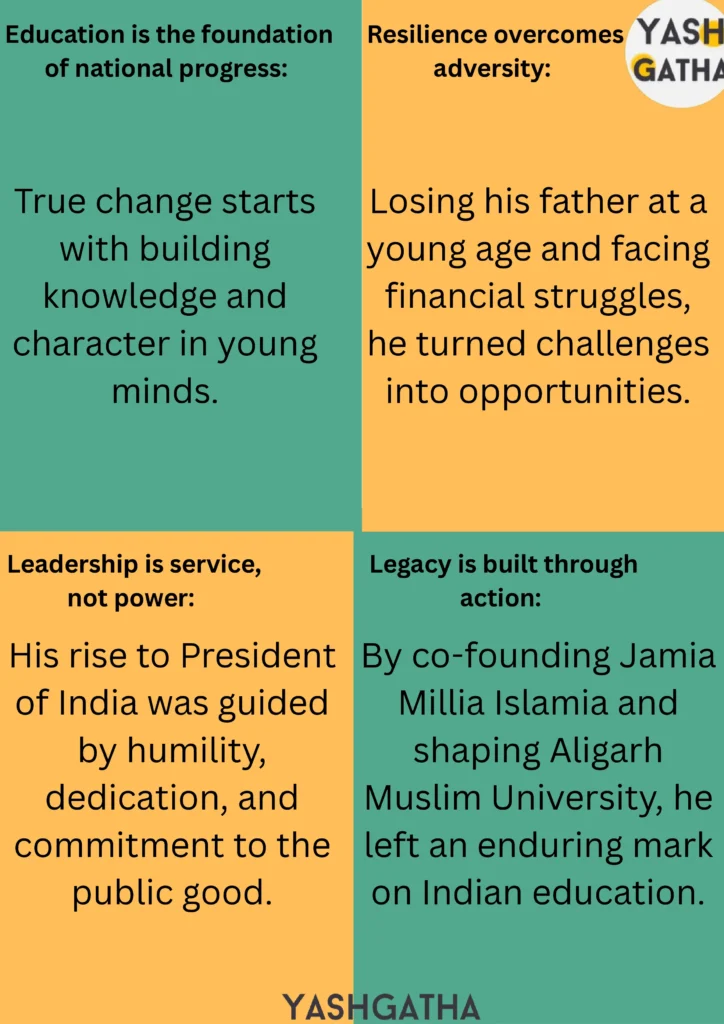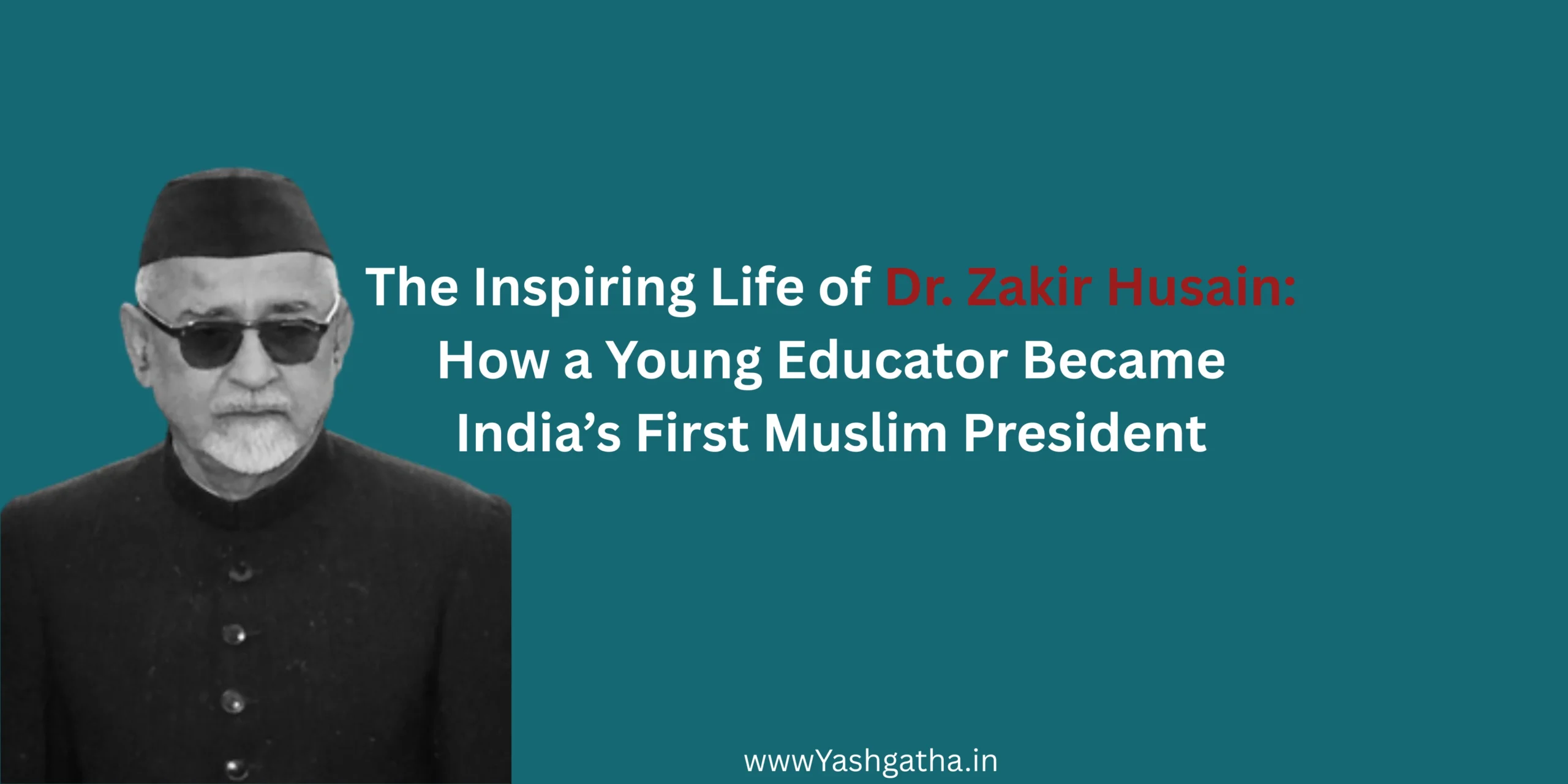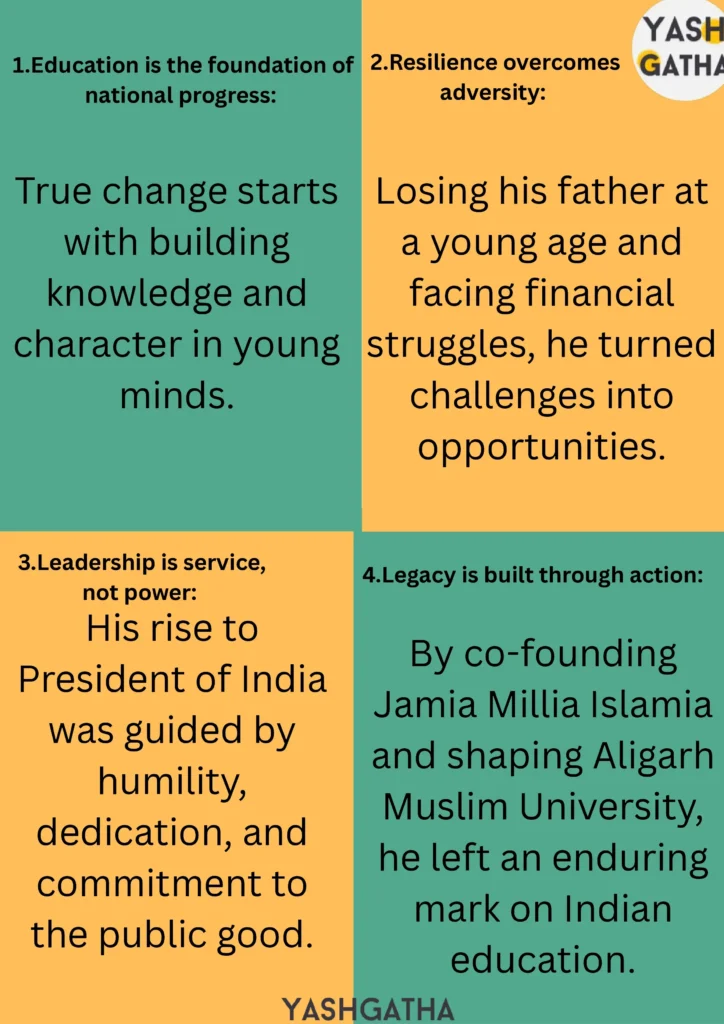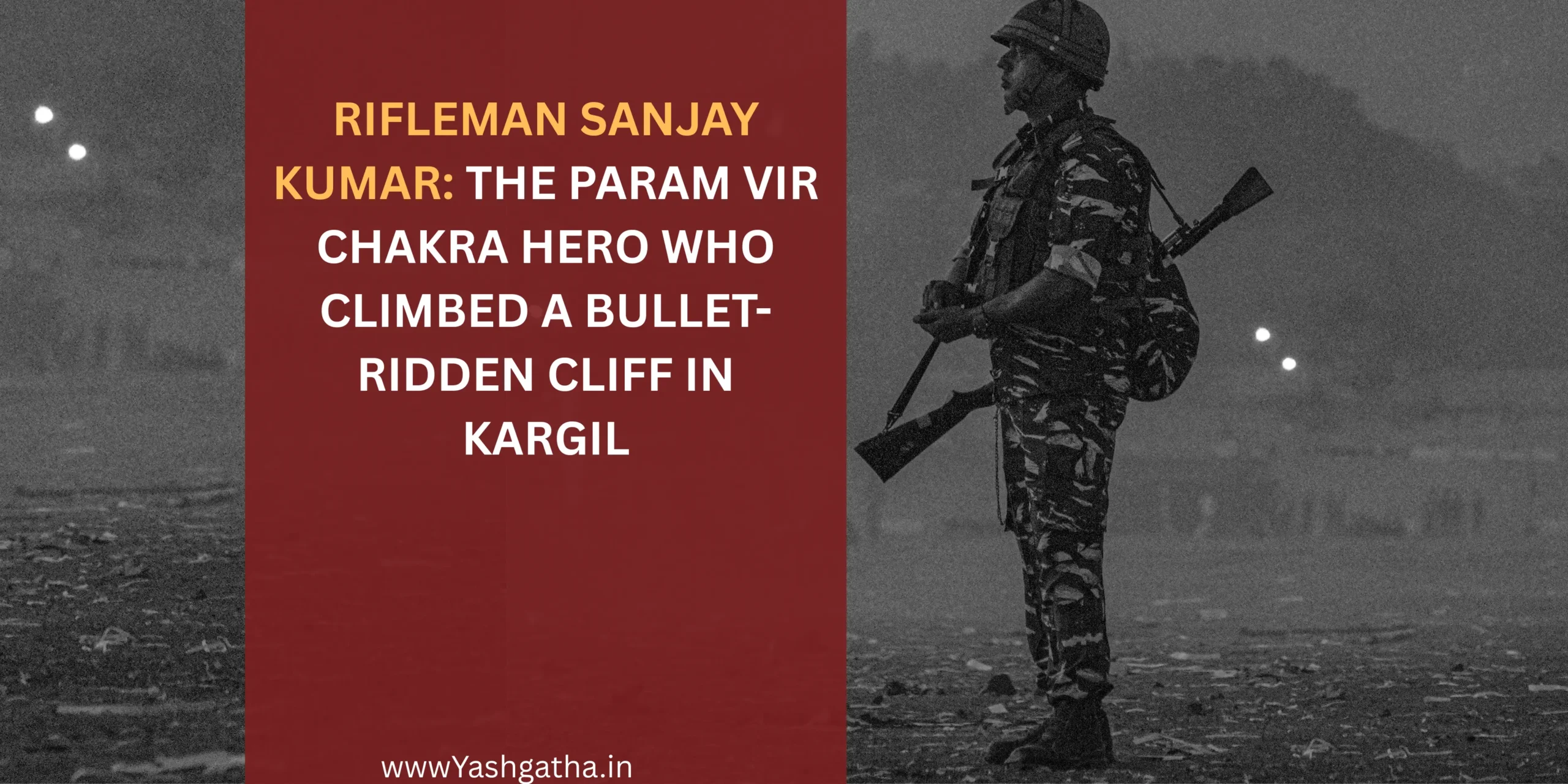Dr. Zakir Husain Khan, born in Hyderabad in 1897, was a visionary educationist, co-founder of Jamia Millia Islamia, and the first Muslim President of India, who was honored with the Bharat Ratna in 1963 for his outstanding contribution to education, literature, and public service; remembered for his belief that “the road to national progress passes through the school building,” he continues to inspire generations as a symbol of knowledge, humility, and nation-building.

Dr. Zakir Husain (1897–1969) was not only the third President of India but also one of the nation’s most celebrated educationists and thinkers. Born in Hyderabad and raised amid personal struggles, he turned his hardships into fuel for a lifelong mission: to make education the soul of India’s progress. As the co-founder of Jamia Millia Islamia University, he championed learning as a tool for freedom, unity, and empowerment. His visionary ideas and reforms in the field of education earned him the Bharat Ratna in 1963, India’s highest civilian award.
Rising from a humble student in Aligarh and Berlin to Rashtrapati Bhavan, Dr. Husain became the first Muslim President of India, embodying humility, scholarship, and service to the nation. His story is not just history—it’s a timeless inspiration for students, leaders, and dreamers across generations.
Early Life & Challenges :
Dr. Zakir Husain was born on February 8, 1897, in Hyderabad (then Hyderabad State) into a middle-class family. Tragedy struck early when he lost his father at the tender age of 10, leaving his childhood marked by financial difficulties and emotional struggles. Despite these hardships, young Zakir showed a deep inclination toward learning, discipline, and moral values, which would later shape his destiny.
He pursued his early education in Etawah, Uttar Pradesh, before moving to the Mohammedan Anglo-Oriental College (later Aligarh Muslim University). Here, he was influenced by progressive educational movements and the call for national service. Unlike many of his contemporaries who chose careers in law or politics, Husain found his true calling in education as a tool for social transformation.
Determined to widen his intellectual horizons, he traveled to Berlin University in Germany, where he completed his doctorate in economics—a rare achievement for an Indian at that time. However, this journey wasn’t easy. Living abroad as a student from a modest background came with financial constraints, cultural barriers, and the pressure of representing India in a foreign land.
What set Zakir Husain apart was his resilience. Instead of succumbing to these challenges, he used them as stepping stones. His struggles instilled in him a belief that education is not just about literacy, but about building character, discipline, and national consciousness.
Key Insight: These early challenges not only tested his willpower but also prepared him to lead a life dedicated to education, cultural unity, and the service of the nation.
The Turning Point :
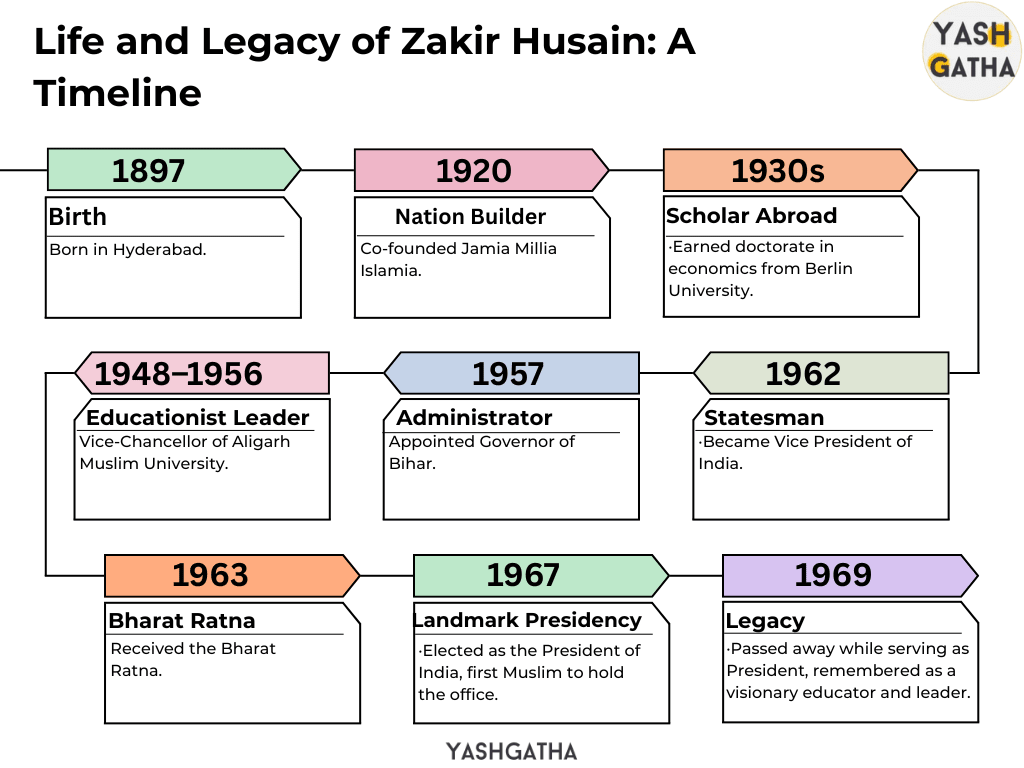
The Recognition & Award :
Dr. Zakir Husain, widely respected as a visionary educationist and nation-builder, was awarded the Bharat Ratna in 1963, India’s highest civilian honor, in recognition of his lifelong dedication to transforming education, modernizing Jamia Millia Islamia and Aligarh Muslim University, promoting inclusive learning, and shaping young minds, and this accolade not only celebrated his achievements but also symbolized the nation’s acknowledgment of his belief that “the road to national progress passes through the school building,” inspiring generations to follow his path of knowledge, humility, and public service.
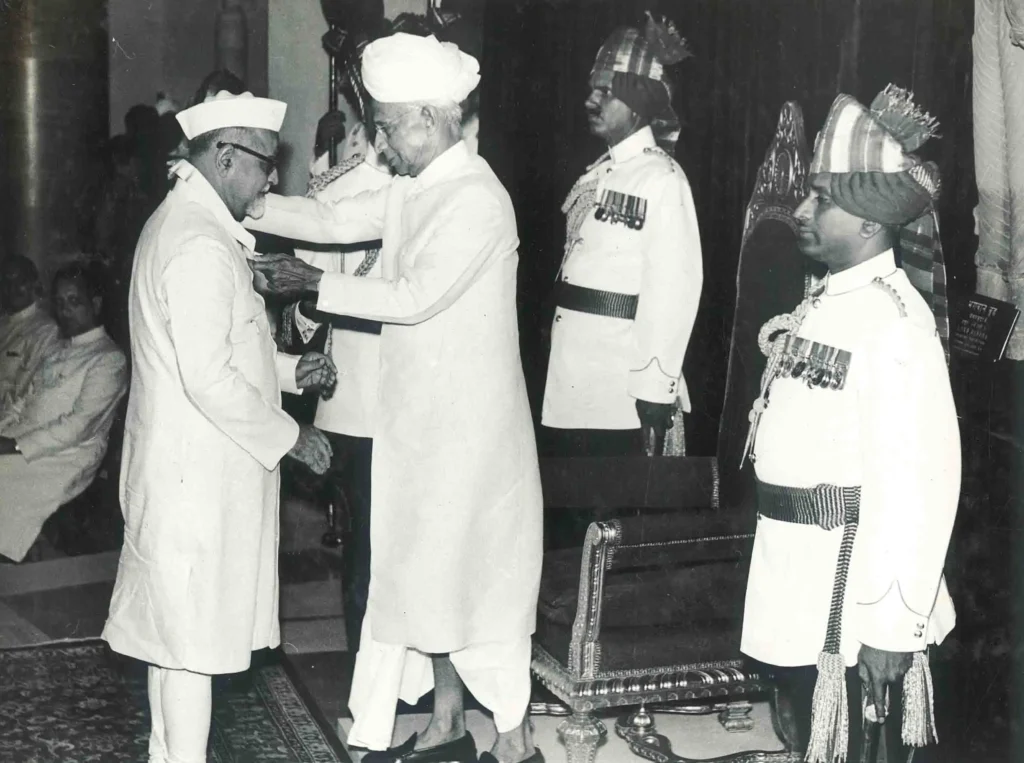
credit:wikipedia
What Changed After the Awards :
Receiving the Bharat Ratna in 1963 marked a pivotal moment in Dr. Zakir Husain’s life, elevating his influence from an educationist to a national statesman. The recognition not only honored his past contributions but also opened new avenues for leadership and service. Here’s what changed after the award:
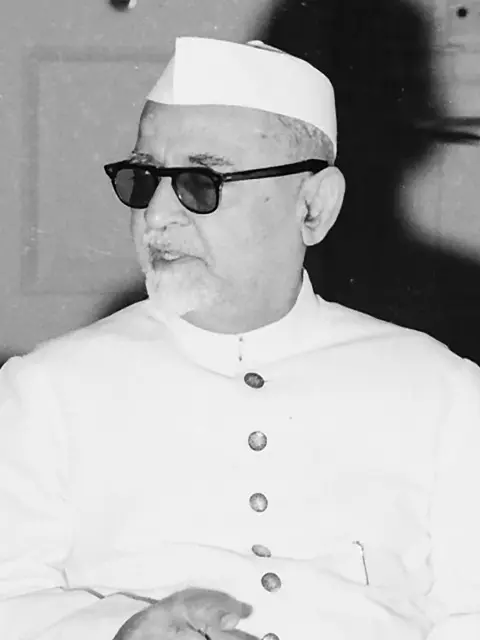
credit:wikipedia
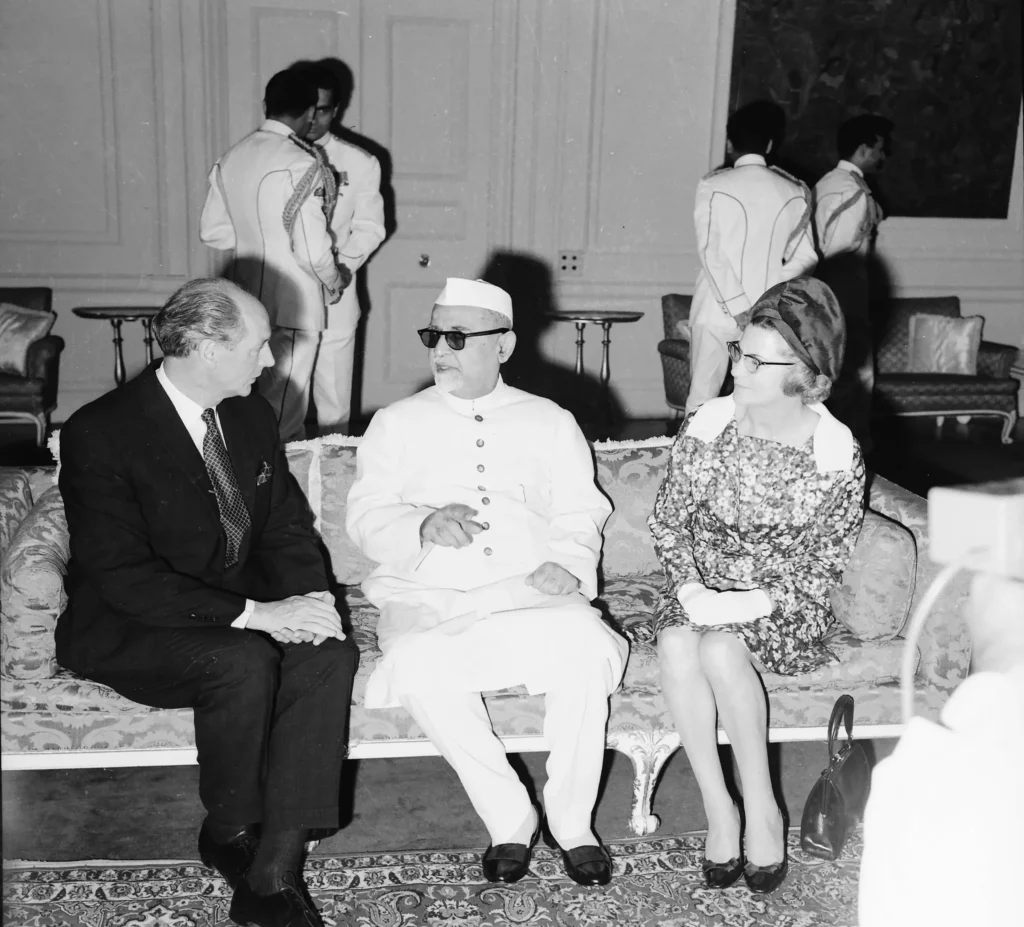
credit:wikipedia
- Rise to Vice Presidency: Shortly after, he was serving as the Vice President of India (1962–1967), gaining national and international recognition.
- Presidency: In 1967, he became the third President of India and the first Muslim to hold the office, symbolizing India’s commitment to secularism and inclusion.
- Global Recognition: His award and status brought him onto international platforms, where he represented India in diplomatic and educational forums.
- Expanded Influence in Education: He continued to shape Jamia Millia Islamia and other educational institutions, influencing policies and curricula nationwide.
- National Inspiration: His journey inspired countless students, educators, and leaders, emphasizing that dedication to knowledge and service can transform a nation.
Insight: The Bharat Ratna didn’t just honor Dr. Husain’s achievements—it amplified his platform, allowing him to impact India’s educational and political landscape on a much larger scale.
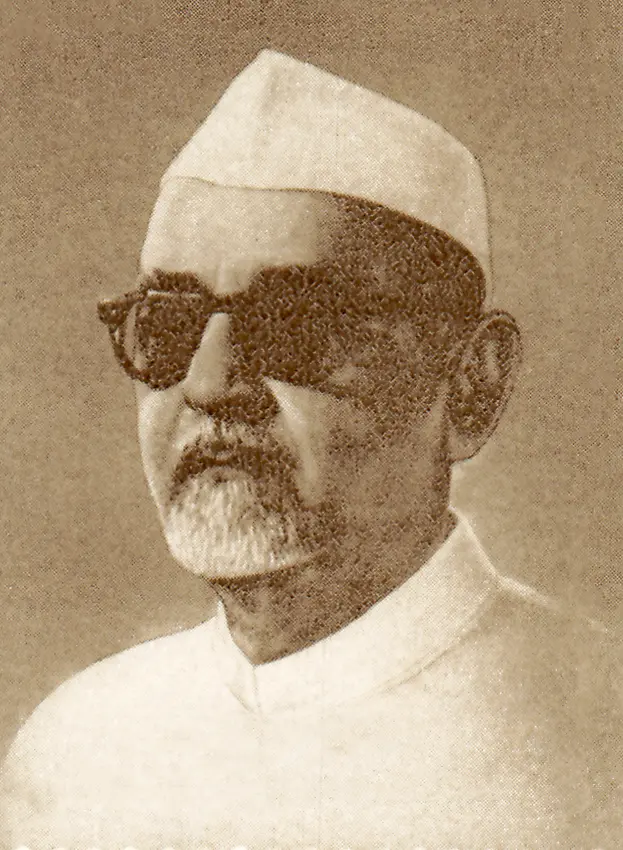
credit:wikipedia
Yashgatha Takeways:
